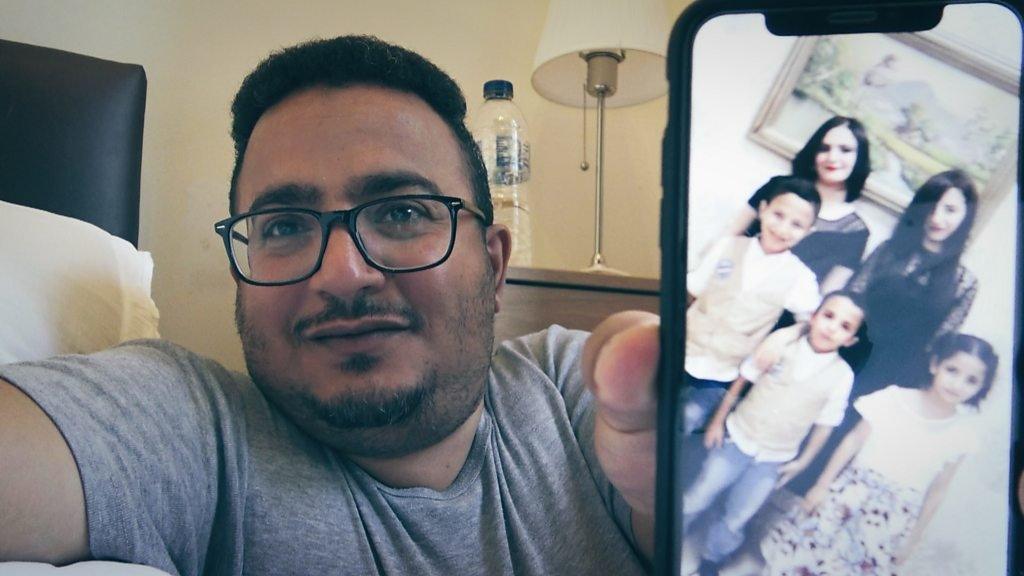Councils need money to take asylum seekers, says MP
- Published
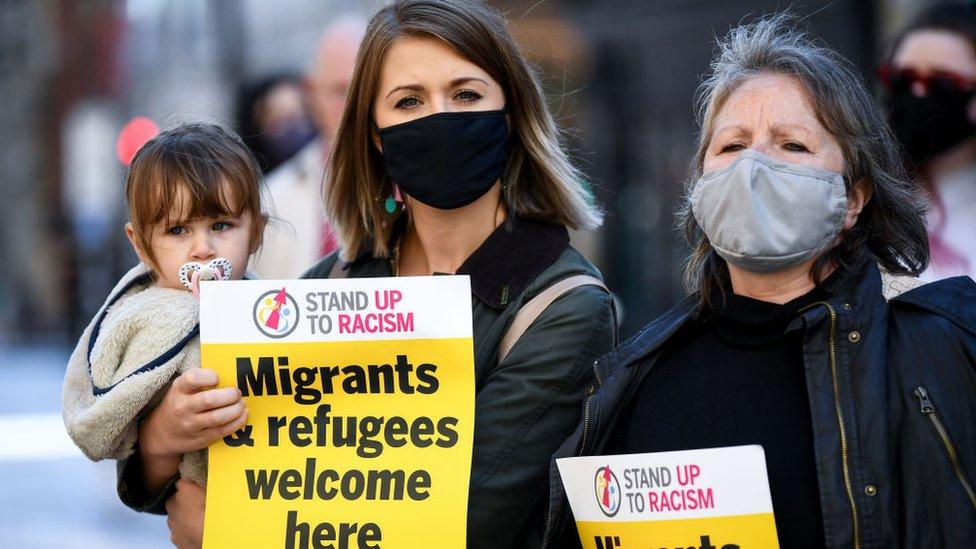
Activists in Glasgow campaigned against the treatment of asylum seekers in Glasgow last year
The Home Office must give Scotland's councils money and more powers if they are to safely welcome asylum seekers, the SNP 's home affairs spokesman said.
On Monday, Home Secretary Priti Patel criticised Scottish councils for the numbers of children they have taken.
Glasgow is the only Scottish area in the UK government's dispersal scheme.
But Stuart McDonald MP said this was partly because private housing firms have placed people in "completely inappropriate" areas.
Campaigners have said that a knife attack at a Glasgow hotel which left six people injured last year was a "direct result of the dysfunctional UK asylum support and accommodation system".
Councils across the UK are now to be forced to care for some of the unaccompanied asylum seeker children who have arrived via the English Channel in small boats.
It comes as the number of migrants to have reached the UK by boat this year has risen to more than three times the 2020 total.
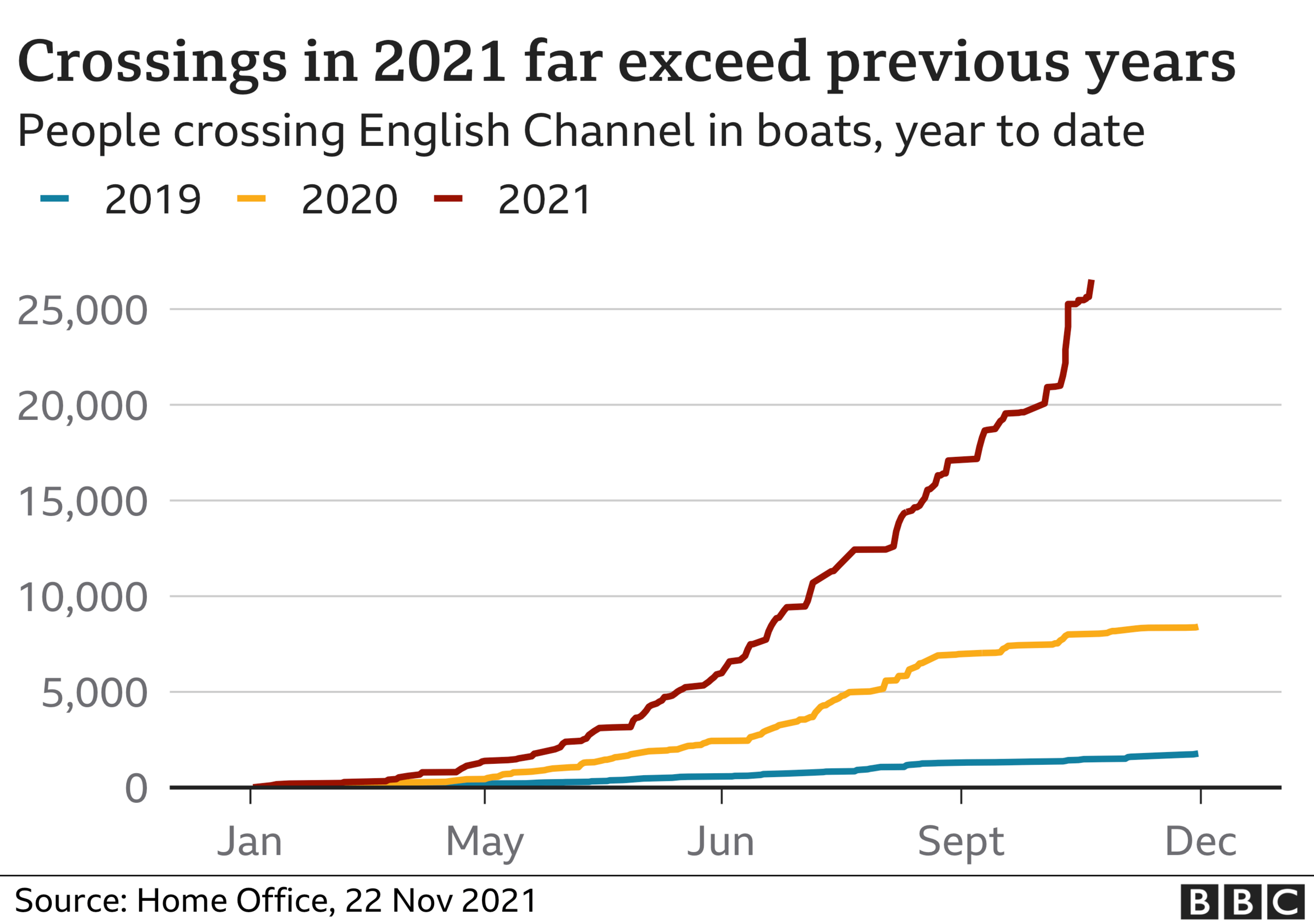
In a heated Commons session on Monday, Priti Patel claimed Scottish councils were not "pulling their weight", while suggesting Scottish ministers would not "lift a finger" to help.
Mr McDonald told the BBC's Good Morning Scotland programme that Scottish councils do want to play their part, but were "less inclined" because the Home Office had "allowed private companies to ride roughshod over locally elected bodies".
He said: "It's first of all about funding - the Home Office doesn't pay a single penny to the local authorities who are dispersal areas. Secondly, they need to give local authorities more power and influence over how dispersal works in their areas.
"Far too much power is signed over to the private contractors that the Home Office has signed up - they get to choose where in the cities people are placed.
"Often, local authorities feel they are being placed in completely inappropriate areas where there are already challenges around deprivation."
Scotland 'already plays its part'
In June last year, six people were stabbed and one man shot dead during an attack at the Park Inn Hotel in Glasgow where asylum seekers had been moved in response to the Covid-19 pandemic.
At the time, campaigners said the city was experiencing an asylum seeker "accommodation crisis".
Glasgow City Council announced a temporary ban to "ease pressures", but earlier this year the BBC learned the ban could last for years.
In June, there were still 200 asylum seekers living in hotels across the city.
Footage posted online showed a major police response in Glasgow city centre
Mr McDonald pointed to seven local authorities in the West Midlands who have also suspended their intake of asylum seekers, saying they have "disproportionately carried the burden" of the scheme.
He said Ms Patel had a "brass neck" to criticise Scottish councils when some Conservative-run areas were challenging the Home Office through the courts.
He added: "Because Glasgow is the biggest dispersal in the UK, Scotland per head of population already plays its part with only Glasgow participating.
"I know other local authorities in Scotland would like to take part in dispersal but, like their colleagues down south, they're not going to do that until the Home Office does its side of the bargain."
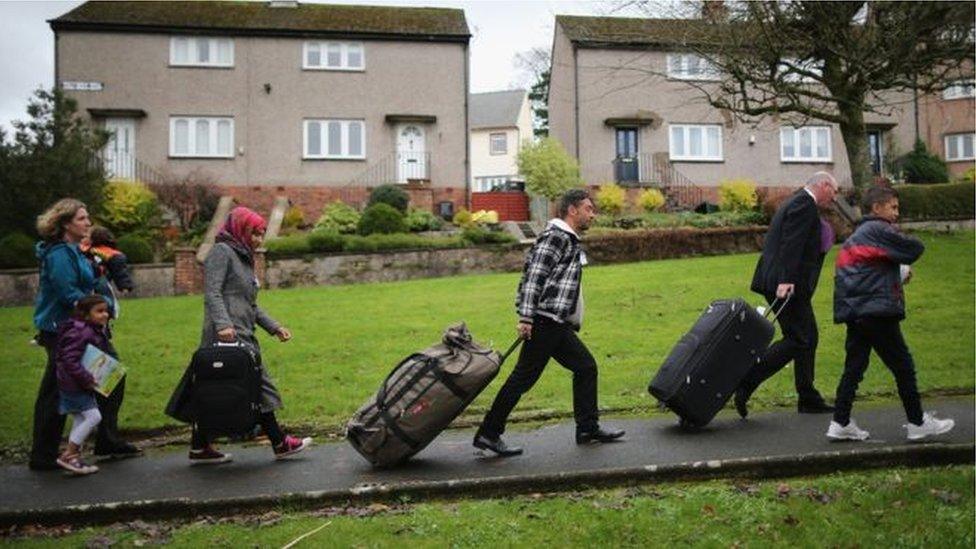
Syrian refugees arriving in Scotland in 2019
The Home Office has sent councils across the UK a letter giving them two weeks to present reasons why they should not accept asylum-seeking children.
More than 100 children are currently living in hotels in councils on England's south coast because of a shortage of places in children's homes.
Sabir Zazai, chief executive of the Scottish Refugee Council, told the BBC the Home Office's procurement of hotels was a plan that "had not learned lessons from the dreadful loss of life" in Glasgow.
He said: "Staying in these hotels is not in any way a luxury - people are suffering, they're not allowed to work and are on £1 a day. People are away from that welcome hospitality of local communities and also people do not have access to their rights.
"It's important if they want local authorities to take part in dispersal then there needs to be accountability, collaboration and a dignified community-based integration."
- Published23 November 2021
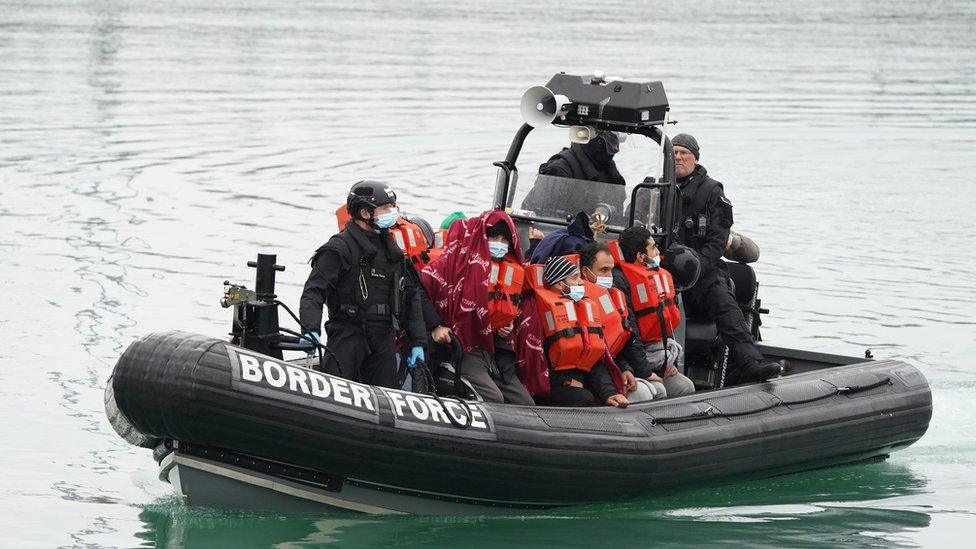
- Published15 June 2021
